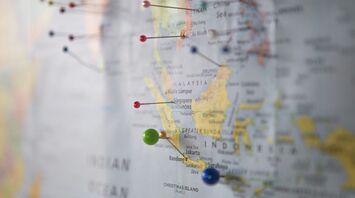B Corps Can Help Us Travel More Responsibly—But What Are They?

The number of B Corp-certified companies is growing, but what does this mean, and can initiatives like this really help us?
Travel has incredible potential for good. It can boost local economies, provide much-needed funds for conservation, and offer employment opportunities. However, not all companies operate in a way that benefits the regions they work in, an issue that has gained increasing attention in recent years.
Travelers are increasingly seeking more responsible experiences. According to Booking.com’s 2023 Sustainable Travel Report, 76% of respondents want to travel sustainably over the next 12 months. Similarly, a 2021 Google study found that 71% of people think travel companies should offer more sustainable choices.
Despite this desire, only about a quarter of travelers book responsible trips, a phenomenon known as the ‘intention gap.’ Factors such as price and convenience contribute, but a lack of reliable information is also to blame. The proliferation of tenuous sustainability claims and jargon in marketing materials hasn't helped.
This is where certifications come in, providing a badge to let customers know a company is doing what it claims. However, with over 100 certifications in the travel industry, it can be difficult for consumers to navigate. Some certifications involve rigorous checks, while others require little more than box-ticking. Understanding what each certification means can be challenging.
Business with Purpose
Founded by three friends in the US in 2006, B Lab certifies B Corporations to help businesses have a better social and environmental impact. The certification process verifies if a company is acting in the best interests of people and the planet. B Corp certification is available to any company in any sector, with notable brands including Patagonia and Ben & Jerry’s. In the travel industry, certified B Corps include hotels, tour operators, and sites listing self-catering options.
What Becoming a B Corp Involves
To become a B Corp, a company must:
- Score at least 80 out of 200 in an online assessment covering governance, workers, community, environment, and customers.
- Legally commit to considering its impact on the environment and society rather than just making a profit, known as the ‘triple bottom line’ or ‘mission lock.’
- Be transparent about its impact, with profiles on the B Lab website detailing how it measures up to the standards.
A Growing Movement
As the only multi-sector environmental and social certification, B Corp is in demand, with waiting times of up to two years for assessment. Companies seek B Corp certification for various reasons, including being part of a community of sustainability leaders and appealing to ethical travelers.
A Complex Reality
While the B Corp badge indicates a company is trying to benefit its operating regions, understanding its full impact on specific trips can be complex. The B Lab assessment could be more thorough in examining a travel business’s impact in the places they operate. For example, companies may commit to fair wages for their employees but not extend this to workers in the hotels they partner with.
Despite these limitations, certifications like B Corp provide a seal of approval that suggests a company is trustworthy. However, travelers should remain curious and actively engaged rather than blindly accepting certifications. The specific sustainability challenges vary greatly by destination, making it difficult for standardized certifications to address all issues comprehensively.
Continual Improvement
B Lab is reviewing its assessment process to address criticisms and will soon require companies to meet minimum standards across multiple issues, such as fair wages and environmental stewardship. This commitment to continual improvement provides hope in the imperfect world of sustainability certifications. While it remains to be seen if B Corp can evolve quickly enough to meet consumer scrutiny and regulatory changes, supporting B Corp-type businesses can contribute to a better world.



















